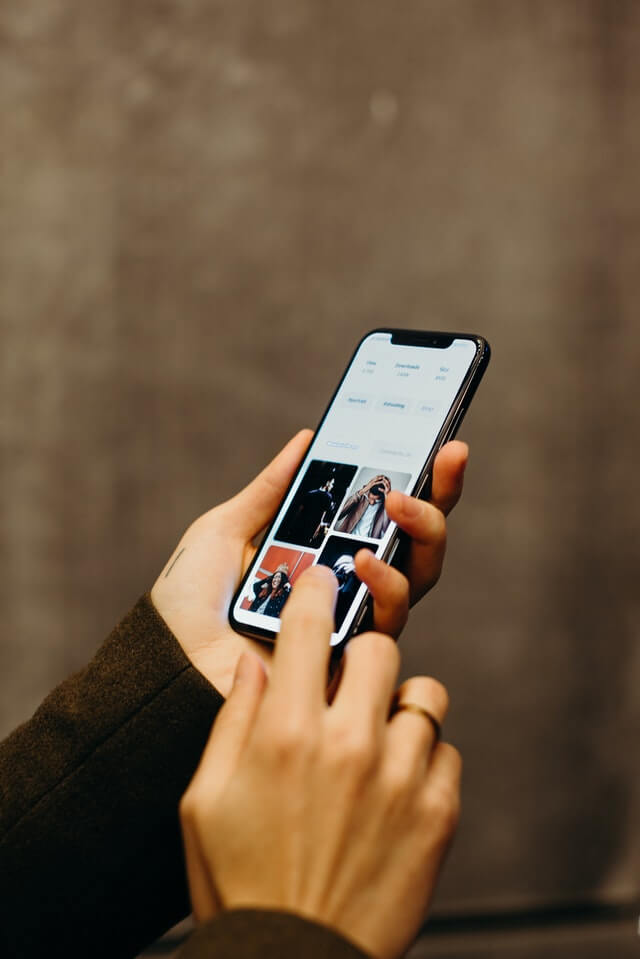Digital marketing has evolved more rapidly than any other area of marketing, and the COVID-19 pandemic is to blame. Because technology is altering our world at such a rapid rate, keeping up with new industry trends is now becoming incredibly hard. People started spending more time online than ever before during the pandemic, improving their online presence and expanding the online business possibility, suggesting a bright future for digital marketing agencies.
With the emergence of COVID-19, people all over the world were confined to their houses for long periods of time, followed by social distancing norms, resulting in irreversible consumer behaviour changes and a significant shift in information, commodities, and service consumption patterns. Regardless of whether there is a pandemic or not, the more people interact with technology, the more they like the experience, making it a regular part of their lives.
To make exciting changes and lead the Marketing profession, digital marketing and advertising agencies should get off the cutting edge and jump to the bleeding edge.It’s obvious that digital marketing is changing to keep up with new technology advancements and shifting customer expectations, such as the expectation that ads and content become more tailored and relevant to the individual.
Adaptation of New Realities:
-
Increasing the number of discerning customers:

Digital marketing companies have even more opportunities to approach customers now that online presence has become a daily part of people’s lives, but with a catch. People will become more sensitive to marketing communications that do not strike the correct tone as they become more acclimated to these digital channels.
Digital marketing may attract more people in the future, but getting people to take action is not easy. We witnessed huge drops in click-through rates (CTR) across several platforms at the beginning of the pandemic, with the CTR for Google search advertising plummeting 41% year over year in Q1 2019. If these trends continue and consumers become more resistant to online marketing, agents must continue to innovate in quality to succeed.
Whether it’s hiring top-tier copywriters and graphic designers or using digital advances that prioritize user experience, agencies will have to pull out all the stops in the post-Covid world to guarantee their marketing efforts are effective. Agencies can’t afford to slack now that there are more customers online than ever before.
-
Effectively Communicating Return on Investment

Millions of companies were thrown into disarray as a result of the pandemic. Even for firms that prospered during the lockdowns, the effects of such economic upheaval are long-lasting.
While the movement in consumer behavior toward online habits certainly provides a huge potential for businesses, customers are likely to be wary about spending money on marketing. How digital marketing companies communicate the potential return on investment of their services will be critical.
It’s not just about what you offer; it’s also about solving customer problems and getting tangible results. It’s one thing to say you’re a HubSpot specialist; clients want to know how that translates into a return on their investment and how it will benefit their company.
In a world where finances are being examined, demonstrating the value of your services through precise insights will be critical.
-
Competitive Differentiation via Agility

The world had to adapt to work from home during the pandemic. The fascinating thing was that many firms found it to be extremely successful. Many of the most famous companies in the world are eager to make working from home the new normal.
Although digital marketing companies are generally well-prepared for this transition, there are also several notable trends. The business took a hit in the early weeks and months of Covid, but one research found that 80 percent of agencies who experienced a 30 percent gain in income were outsourcing.
These firms recognized they could forego costly facilities and instead rely on the freelancing economy to deliver great services to clients on demand. It has become an ongoing process that enables organizations to complete highly specialized work without the need for full-time staff.
This allows digital marketing companies to be more flexible, reduce fixed costs, and quickly scale to meet customer expectations. Many agencies might not have made this change if it hadn’t been for the epidemic.
-
Brand Positioning In an ever-more-competitive market

More and more businesses are understanding the value of having an online presence, which has been going on for decades. Even for those who were adamant about not using the internet, the epidemic put things in perspective. Businesses were forced to scramble to improve their online presence, and digital marketing firms reaped the benefits.
On the other hand, if the potential is great, there will usually be a lot of competition, and the same is true for digital marketing. In 2021, there will be 5,585 digital advertising firms in the United States, up 13.1% from 2020. As more firms understand the value of internet marketing, the competition is only going to become tougher.
The power of their brand is one advantage established digital marketing companies have over newbies. As marketers, we are always emphasising the importance of strong branding to our customers, but we must also ensure that we are following our own advice.
Brands that can position themselves as strategic partners rather than simply another service provider will have an advantage in the digital marketing arena, which is expected to grow increasingly congested.
Now let’s take a look into the future of digital marketing post Covid-19.
-
Paid Search and SEO

The coronavirus epidemic has had a major impact on the future of marketing, especially SEO and sponsored search.
Due to current health issues, consumer behavior is changing. Because individuals can no longer go to the store for every little thing they require, most customers choose to browse for items online rather than risking exposure by exploring available alternatives in person.
Search engine optimization has always been important since, after a little initial setup cost, it essentially provides free web traffic. Search engine optimization is more essential than ever with the development of the coronavirus and changes in consumer behavior. This is true of local SEO as well as local marketing in general.
Unfortunately, many companies will be unable to resist the epidemic; nevertheless, clients will want to check online to ensure that they are still operating before heading out into the public.
Many new companies will open, and customers will want to look for and learn which ones are worth visiting in person, emphasizing the significance of SEO, local SEO, and sponsored search.
-
Digital Advertising

The amount of money spent on advertising has changed as a result of the shift in how people purchase. Cinema, out-of-home, and print advertising all fell very immediately when global confinement measures were implemented.
Meanwhile, in-home media consumption increased, including:
- Viewership on television
- Services that provide live-streaming
- Platforms for social media
- …as well as other forms of in-home entertainment
Because of the way consumers buy these days, product features, specs, and pricing are more important. With the shift in online consumer behavior expected to continue post-COVID, marketers must now focus more on promoting the correct messages on the right channels.
-
A digital-first Strategy

Going digital-first has been a hazy idea for most firms until recently. However, it is now more vital than ever for firms to approach all aspects of their marketing, including branding, user experience, and so on, with a digital-first mindset.
This is especially true for industries that have been hit the most by Covid-19, such as travel and tourism, retail – brick and mortar stores, restaurants, automobiles, and clothing and fashion.
As a result, rather than starting with channels, devices, and mediums, organizations should focus on the people who will use the technology and the goals they intend to achieve.
Simply defined, tackling new challenges or opportunities with the idea that all solutions must be as digital as possible is what digital-first is all about.
Customers no longer rush to the store for every little thing they require, as previously said. Instead, they buy online, putting firms with strong internet presences ahead of the competition right away.
-
Social Media

Both organic and paid social media marketing have benefited greatly as a result of social distance. Many individuals have begun to rely on social media for socializing, and as a result, they are now more familiar with the many social media platforms, such as Instagram, TikTok, Facebook, and others, all of which have seen a significant rise in usage.
All of this has resulted in a greater emphasis on developing and keeping good customer connections, and marketers are searching for methods to communicate with their audiences in a more efficient and effective manner.
A greater emphasis is also placed on company culture, mission, and vision. Everyone is making a sacrifice for the greater good by staying at home to safeguard society. From here on out, that mindset will most certainly pervade how people purchase.
More customers will want to know that their money is going to firms that are doing the right thing in the world as a result of this feeling of community.
For example, consumers might want to know if their food is ethically sourced, or how they plan to safeguard their staff in the event of a pandemic – and social media is a wonderful way for marketers to accomplish these and other objectives.
-
Digital Meetups

The coronavirus epidemic has prompted a lot of the increase in webinars and digital events we’ve observed. Virtual events, on the other hand, are here to stay due to a shift in consumer behavior.
In response to the epidemic, marketers are using digital event platforms such as Google Meet, Zoom, Go To Webinar, and Microsoft Teams. They may continue to provide value to their consumers with solutions like these, even when many of their greatest target clients aren’t buying owing to frozen budgets.
Long after the coronavirus is gone, this strategy of investing in connections and generating value will certainly remain.
-
Video Marketing

Even before Covid, a growing number of individuals preferred video to all other forms of media. Today, video marketing is still developing rapidly.
The graph below demonstrates how ad spending in digital video has increased in recent months, while spending in other channels has decreased.
The video marketing area will continue to present possibilities for firms that can develop high-quality, educational films that appeal with their viewers, as seen by the increased use of YouTube and other video sharing sites.
-
Getting more done with less

Even before Covid, a growing number of individuals preferred video to all other forms of media. Today, video marketing is still developing rapidly.
The graph below demonstrates how ad spending in digital video has increased in recent months, while spending in other channels has decreased.
The video marketing area will continue to present possibilities for firms that can develop high-quality, educational films that appeal with their viewers, as seen by the increased use of YouTube and other video sharing sites.
Analysis
In the end, marketing and the way we do business have been radically altered – maybe forever. The aim, though, remains the same.
So, whether we’re marketing to individual individuals or large businesses, the fundamental aim remains the same: to raise brand recognition, generate leads, build customer loyalty, and eventually expand and scale our firm.
The key to success in such a constantly changing environment is not to grow old.
We were already living in a digital society, but the worldwide coronavirus epidemic has accelerated that tendency significantly.
If marketers don’t grasp how marketing has evolved, what this shift implies for marketers, and how to adapt in the short and long term, they will struggle to succeed.
Some other Posts you might be interested in.
Top 10 Problem-Solving Techniques for Creative Teams
Discover the top 10 problem-solving techniques that can enhance the creativity and efficiency of your team.
Top 10 Problem-Solving Techniques for Creative Teams
Discover the top 10 problem-solving techniques that can enhance the creativity and efficiency of your team.
The Subtle Art of Persuasion: Unveiling the 5 Best Print Ads Ever
Crafting Print Ads That Transcend Time In an era dominated by digital media, the enduring power of print advertising continues to captivate audiences worldwide. Far from fading into obscurity, print ads have evolved, becoming more innovative and compelling than ever...



